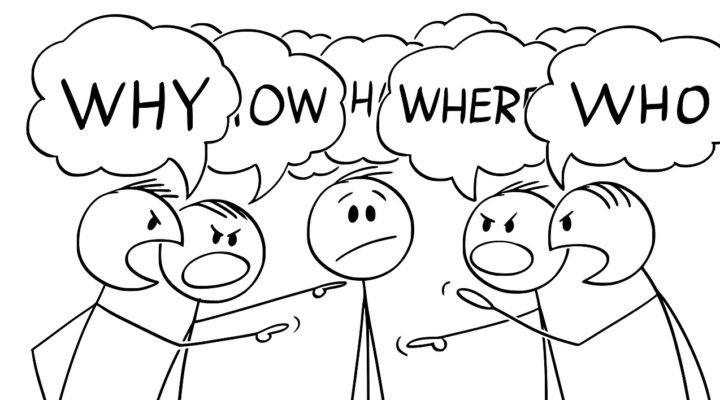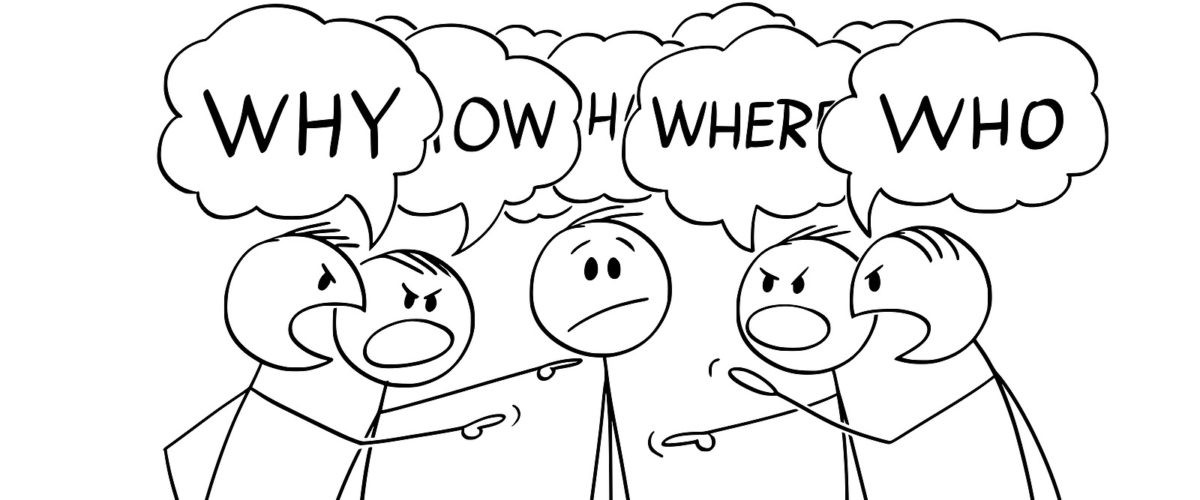Humor me and try to imagine something: Many days, as you go through your life, someone, somewhere gives you a quick jab in the gut. Sometimes it’s a jab to the face. It happens over and over. It happens to you and others, and it starts so early that some who experience it come to think it’s their fault. Usually it is quick jabs that don’t cause a lot of injury on their own, but happening day after day, they make you put up defenses. On occasion, it is not a light jab but a full right-hook to the face. When that happens, some people who never experience the daily jabs may temporarily come to your defense, but when things go back to the normal, light, near-daily jabs, those defenders are gone again.

Corey Fields
Then imagine, after years of taking these quick jabs that many people don’t see or experience, a friend happens to be present to witness one of the jabs. After it happens, you urgently ask: “Did you see that? This has been happening to me my entire life. Please help me stop these constant jabs.”
In response, your friend has a lot of questions about your interpretation of the experience:
- “How do you know they did it to hurt you?”
- “Are you sure they meant to hit you? I need their side of the story first.”
- “Did you do anything to provoke it?”
- “Why are you so worked up about this one thing?”
The disconnect here should be apparent. You’ve been experiencing something your entire life, and this time is just the next time. It’s been piling up and piling on, and you see it for what it is — a constant experience you can’t get away from. But your friend, who doesn’t experience the persistent jabs, only sees one incident in isolation. What to your friend is just an effort to be fair-minded and reasonably nuanced only reinforces to you they don’t understand and, at the very least, you can’t count on them to be an ally in your struggle anytime soon.
This is one way I think about the experience of people of color in the United States, particularly Black people. Racism is a constant reality of their existence. The lighter jabs are persistent and build up. Being ignored by the store employee who immediately greeted the white customer. Someone’s surprise at how smart or articulate you are. Being mistaken for another person of color you look nothing like (especially bad if the other person is a suspect for a crime).
Other times it’s the right hook of being denied a job even though you’re the more qualified candidate, a racist slur, or being stalked because you “look suspicious.”
Sometimes it’s the body slam of a person with a gun seeing you as a threat and carelessly shooting you (and then facing no consequences). In his book How to Be an Anti-Racist, Ibram X. Kendi calls this experience a “persistent daily low hum of racist abuse.”
All that is maddening enough, but then comes one of those quick jabs caught on tape and posted to the internet, like former NFL wide receiver Brandon Marshall getting the cops called on him as he’s trying to move into his new house.
For a person of color, it’s jab No. 258. (“This is what we’re seeing every single day,” Marshall said). But the response of many white people is to see it in isolation and respond in a way that, to them, sounds like reasonable neutrality:
- “I want to know the whole story first before I’m willing to say this was racism.”
- “Are you sure this is what you think it is?”
These are not mean responses, but they’re not the response of an ally either. Those who take these persistent jabs don’t have the energy to try to help every white person see what they experience. They hit the streets with the resulting, deeply repressed anger, and in response, much of white America tells them to calm down when they’re peaceful, and then paint the violent, destructive few as characteristic of the movement.
“Those who take these persistent jabs don’t have the energy to try to help every white person see what they experience.”
I’m white. I grew up not seeing it, not knowing it. The process of learning what actually happens, and how different the U.S. really is from how I was taught to see it, was long and disorienting. It requires a lot of listening and reading. Once I started to see it, it required me to accept the shame of having to admit how short-sighted I am.
One of the things Scripture teaches believers to do is “bear one another’s burdens.” It is painfully clear that people of color often feel they are bearing a heavy burden alone. In a moment of exasperation and honesty, one person remarked to me, “I’m tired of having to live this every day while my white friends get to choose when or if to be uncomfortable.”
I recently asked a Black woman in my congregation what this would look like. I asked her, “What does it mean for people like me to try to ‘bear your burden?’” It is sobering to even ask such questions because I fully realize that, in many ways, I can’t take away what she and others have to carry. But after only a short pause, she started her response with two simple words: “Less silence.”
She went on to explain how the silence from some of her white friends is deafening. So many seem to say nothing and go on with their lives even when one of the “body slams” happens.
But in thinking about this, we realize there is a major barrier to white people speaking up, and it is what I described above. We first have to come to a place of seeing more than isolated incidents and understanding that it is not unreasonable or “jumping to conclusions” to assume implicit bias or systemic racism is at play. Despite what we would prefer to believe, such influences are everywhere, all the time, affecting all of us.
If you don’t experience the persistent jabs, you don’t naturally see the pattern, and if you don’t naturally see the pattern, you’re not going to speak up.
The good news is, people like me don’t have to see or experience the pattern firsthand. We need only listen to and believe people of color. White people have to do our own work to see and know there is a struggle going on, and then educate ourselves on the true history of racial inequality and injustice in the U.S. As the saying goes, “White silence equals white consent.”
People of color need allies, not independent investigators.
The website guidetoallyship.com lists seven key points on what it means to be an ally, two being: take on the struggle as your own, and transfer the benefits of your privilege to those who lack it. In other words, this is going to take more than “slack-tivism.” This is going to require many of us to put our own skin in the game.
After all, if we all carry the image of God and share common humanity, this should be the expected course of action. An aboriginal group in Queensland is quoted as saying: “If you have come to help me, you are wasting your time. But if you have come because your liberation is bound up with mine, then let us work together.”
That sounds a lot like “bearing one another’s burdens” and kind of makes “less silence” seem like a very simple ask.
Corey Fields serves as senior pastor of Calvary Baptist Church in Newark, Del. His work has included ecumenical justice efforts and ministry to homeless and refugee populations. He serves on the board of American Baptist Home Mission Societies.


